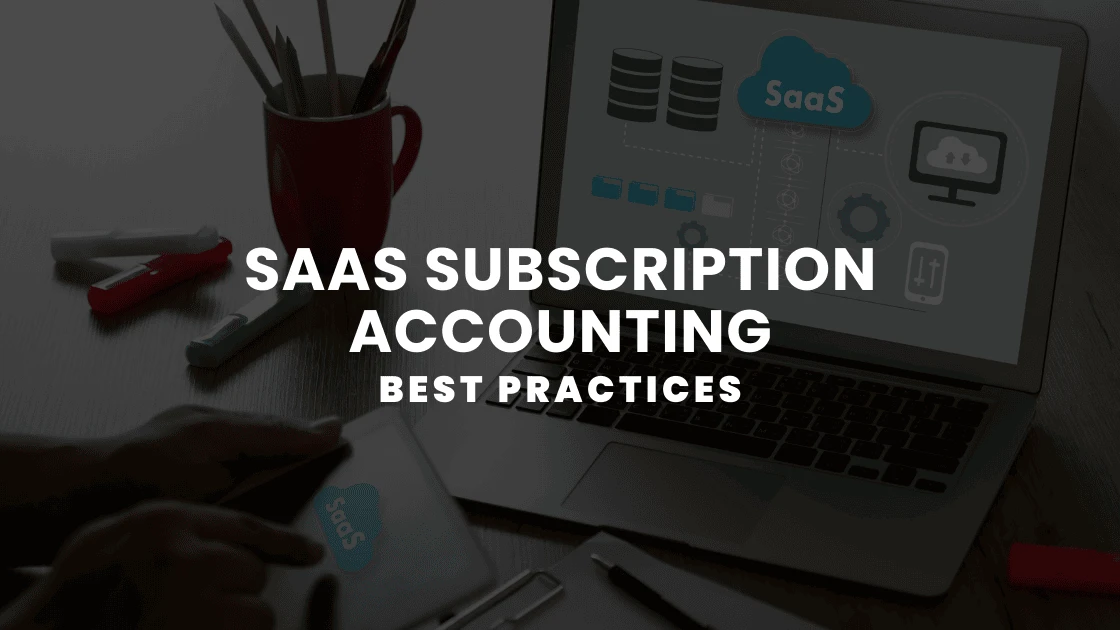June 13 2022 | By Wajiha Danish | 5 minutes Read

Bookkeeping & Accounting: Know the Difference
Types of Startup Accounting
1. Cash Accounting
2. Accrual Accounting
Why to Do Startup Accounting?
When to Begin Startup Accounting?
1. The First Call – Choose A Business Entity
2. The Second Call – Choose Accounting Technique
Important Financial Records to Keep
In A Nutshell…
The hunt for a technical co-founder is often the number 1 priority of startup owners. On number two comes the need to establish a solid business runway. Can you guess what comes next? Accounting.
Accounting for startups is a must-do for business owners who want to move up the business ladder of success. Failure to do so pushes business owners into financial trouble and on the verge of defeat.
Moreover, there is so much more to accounting than tracking cash inflows and outflows – That’s bookkeeping. Startup accounting is a means to ensure you secure the finances needed to get your business up and running, stay tax-compliant, and succeed.
However, before we delve into the whys and how’s of it, let’s first understand what’s accounting and what’s not.
Bookkeeping and accounting both relate to numbers. But, there’s a world of difference between the two. The former tracks day-to-day transactions, be it cash or credit. While the latter entails evaluating records, tracking progress, and preparing financial reports.
In other words, bookkeeping is financial record keeping, while accounting is about interpreting those records for procuring investments and accelerating growth. So, how does accounting help in running a business?
Simply put, the way you track business finances dictates your odds of success. Yes! Accounting is vital, but it is more important to know the correct way to do it. Here are two common ways to do startup accounting.
Cash accounting is the simplest form of accounting. It is the kind every shop owner does day-in and day-out, i.e., tracking expenses and revenue for the day, week, month, and year. Every cash received and paid is added to the books on the spot.
Hence, there is little room for financial ambiguity in cash accounting, and all the records are kept crisp and clean. Safe to say, it is best for startups that want a short-term picture of their finances and worst for those who think long and eyes to procure investments and loans.
On the contrary, accrual accounting is more complicated than the first, but the kind every investment seeker needs to know by heart. As per it, income gets recorded when earned and expenses when incurred.
In other words, whenever you make an expense of bill your clients, it gets recorded into the books even without the transfer of cash. That often complicates bookkeeping, but the complications are worth it. Accrual bookkeeping depicts long-term business progress and betters your prospect of procuring investments.
It is impossible to count the reasons to do startup accounting at your fingertips. Besides the obvious ones, it helps businesses evaluate their position and finances, track progress and move up. In other words, it allows startup owners to examine from where they started and where they stand to better plot the journey ahead.
Above all else, accounting for startups is a must because it helps businesses better communicate with financial institutions and other entities. These include banks, IRS suppliers, creditors, investors, and leasing companies. Opt to skip accounting, and the business’s odds of procuring investments drop near to zero.
In addition to boosting external communications, startup accounting also free up internal communications by helping owners share information regarding the company’s assets and shortcomings with the employees.
Accounting not only helps you judge your business position but also depicts where you stand in comparison with your competitors. At times, it enables you to flaunt your supremacy and get more investments.
Accounting for startups begins from the day you brew the thought of setting up a business entity. It impacts every business decision, from entity type selection to choosing how to track finances.
A startup business owner has to make a couple of vital calls early on. These decisions largely dictate business success and failure, and it is impossible to make these calls without factoring in accounting.
The type of business entity dictates the way you get taxed, how you get to pay yourself, and other business liabilities. Choosing the right business entity can set you up for success, while a wrong decision invites failure.
Thus, evaluate the pros and cons of each entity with an eye on accounting. Remember, you have five options to choose from;
The next big decision on your plate is whether to go with cash accounting or accrual. As you know, both have pros and cons. However, to better your odds of investments, it is recommended to choose the latter.
That’s because accrual accounting depicts the long-term progress of your business. The aspect that interests investors and leasing companies the most.
So, you have finalized your business entity and accounting technique. The next step is to understand what financial records to keep. A one-word answer. Everything!
Every documentation showing income, expense, credit, or deduction must be kept safe. These include receipts, bank and credit cards statements, canceled cheques, bills, proof of payments, financial reports from Monily or your bookkeeper, previous tax returns, and forms.
Moreover, it is best to keep hold of these records even after filing the yearly returns. At least keep them safe for 3 to 5 years. You never know when the need to verify arises.
See Also: Bookkeeping Struggles for Startups and How to Overcome Them
Startup Accounting is one thing you can’t ignore if you are eyeing business success and longevity. It does so much more than showing where the money comes from and where it goes.
To an extent, it dictates whether your business succeeds or fails. So, it is integral to know why accounting for startups matters and how to do it the right way.
Subscribe for business tips, tax updates, financial fundamentals and more.
MORE BLOGS

Running a SaaS business can look simple from the outside. Customers sign up, pay monthly or yearly, and keep using the product. Quite straightforward, right? Behind […]
Learn More →
Revenue is the heartbeat of any SaaS business. But how and when that revenue shows up on your books can change everything, from investor confidence to […]
Learn More →
If you’re a small business, we will absolutely get it if you say you’re having a hard time choosing a payment platform for your company. And […]
Learn More →